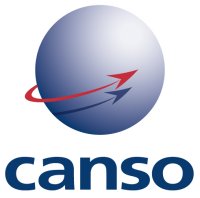CANSO calls for greater unity to tackle industry-wide financial crisis

CANSO (Civil Air Navigation Services Organisation) the global and regional voice of ATM, has called for greater industry unity in the face of a pandemic that has hit the entire aviation community hard - airlines, airports, air navigation service providers, and the vital supply chain that supports it.
Simon Hocquard, Director General, CANSO: “Headline statements from the International Air Transport Association’s Annual General Meeting yesterday could lead to the impression that only airlines should be allowed to recover costs. Yet organisations across the entire aviation spectrum faced a significant drop in revenues these past 20 months and have incurred substantial debt as a result of plummeting air traffic levels. The statements also undermine the considerable steps Air Navigation Service Providers (ANSPs) across the globe have taken to address their revenue shortfalls.”
ANSPs have implemented a myriad of cost-cutting measures – reducing staff numbers, cutting pay and postponing long term investment projects. And they have done so while continuing to fulfil their role as a critical national infrastructure - keeping the skies open and safe no matter what the traffic levels.
A recent survey of CANSO members regarding COVID-19 impacts found that 97% of ANSPs had made cuts to reduce operating costs with 86% of ANSPs also cutting capital expenditure in 2020 and 2021 and beyond. The survey also found that ANSPs have absorbed the impact of reduced revenues in a variety of ways including 73% of ANSPs being forced to cover the costs of continued operations by acquiring new debt.
Where it has been possible, ANSPs accessed government assistance programmes such as wage subsidies, but this support has been inconsistent. In fact, in some parts of the world, States made the conscious decision to provide assistance to airlines rather than airports or ANSPs under the assumption that there would be a trickle-down effect as airlines paid infrastructure suppliers charges.
IATA pointed out that airline non fuel unit costs rose 19% in 2020 compared to 2019, as fixed costs had to be spread over a dramatically smaller capacity base. Air Navigation Service charges are subject to the same phenomena. With reduced traffic, the costs of running the system at some point have to be spread over the lower traffic volume, driving costs up. This effect will moderate over time as traffic grows and we would expect to see “unit costs” decline.
“The ATM industry has a solid record in improving productivity and cost effectiveness and on transparency with regards to its performance. The past 20 months has turned that inside out but has not altered the fundamentals,” Simon Hocquard said.
“A difficult road lies ahead as we wrestle together, and individually, with that fact. This crisis has taught us many lessons, but we must be careful that the lessons we have learned from the current crisis do not undermine the lessons we have always known to be true. That cutting investment in response to a short-term crisis, has a long-term impact on capacity. Now more than ever, it is important for the entire aviation industry to come together and discuss how to tackle the financial challenges we all face and not resort to blaming each other.”









.jpg)
.png)
Comments
There are no comments yet for this item
Join the discussion